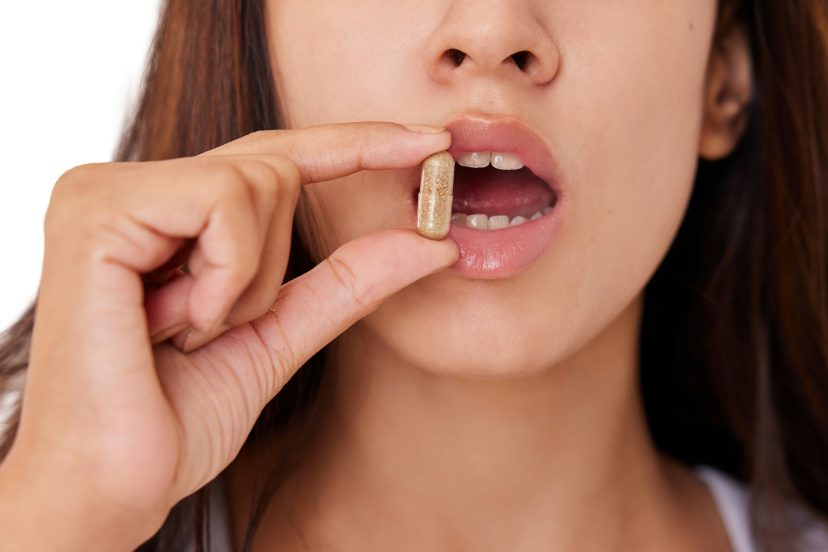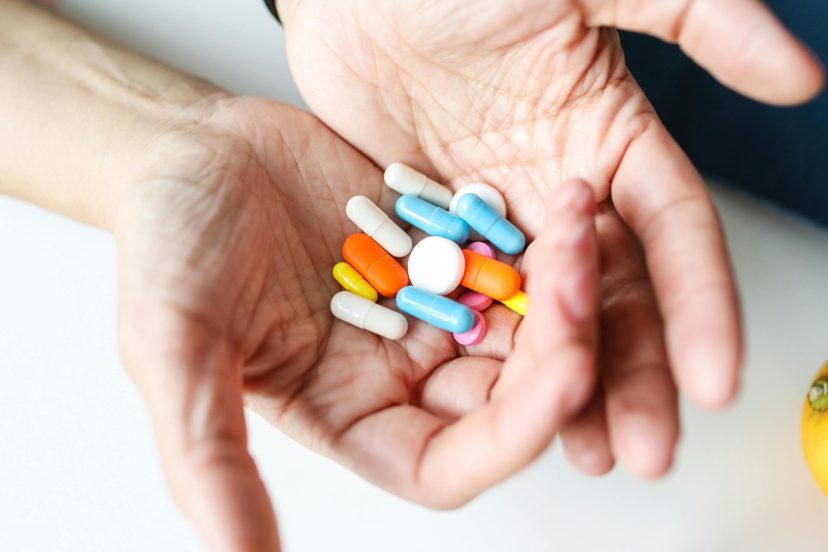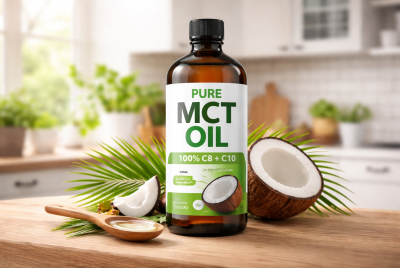7 Powerful Nootropic Adderall Alternatives That Actually Work
We may earn a commission for purchases made using our links. Please see our disclosure for more details.
Adderall is one of the most prescribed medications for ADHD, and it’s well-known for boosting focus, alertness, and productivity. But here’s the catch: while it works, it often comes with side effects like anxiety, insomnia, and even dependency. For people who just want sharper concentration without the risks, that can feel frustrating. The good news is that natural Adderall alternatives exist—science-backed nootropics and adaptogens that enhance memory, energy, and clarity in a safer way. In this article, you’ll discover seven proven options, supported by research and trusted product picks, so you can boost brainpower without a prescription.
What Makes a Good Adderall Alternative?
When people talk about Adderall, they often focus on its ability to create laser-sharp focus and high energy. Any true alternative should do something similar, but in a sustainable and healthier way. That means:
- Boosting cognitive performance – Enhancing memory, focus, and problem-solving.
- Providing clean energy – Increasing alertness without the crash or jitteriness.
- Reducing stress and anxiety – Balancing the brain to perform under pressure.
- Promoting long-term brain health – Supporting neurons and brain structure, not just short-term performance.
For deeper insight into the power of natural compounds, take a look at this guide on nootropics and adaptogens.

7 Nootropic Adderall Alternatives That Work
1. L-Theanine and Caffeine Combo
The natural combination of L-theanine and caffeine becomes clear if you have ever taken a cup of green tea and felt alert but at ease. Caffeine makes you awake, while L-theanine helps you relax without being drowsy. The effects—smooth attention, consistent energy, and little jitteriness—balance out when combined.
A 2017 study in Nutrients confirmed that this combination improves attention-switching and reduces mental fatigue. That’s why it’s popular among students, programmers, and anyone needing sustained focus.
Best for: People who want immediate results without the overstimulation.
2. Bacopa Monnieri
Bacopa has been used for centuries in Ayurvedic medicine to support memory and reduce anxiety. Unlike caffeine-based options, Bacopa is not about quick energy—it’s about building long-term cognitive resilience.
Research published in Phytomedicine showed that consistent Bacopa supplementation improved memory recall and reduced reaction time after 12 weeks. The catch? Patience is key—you’ll need to take it regularly for weeks before the benefits fully show up.
Best for: Students and professionals looking for sustainable memory and learning support.
3. Rhodiola Rosea
When life feels overwhelming, Rhodiola is the adaptogen you want on your side. Known for fighting fatigue and balancing stress hormones, it helps you stay sharp under pressure.
A review in Frontiers in Pharmacology highlighted Rhodiola’s ability to improve endurance and mental performance, especially in stressful situations. Many users report feeling more mentally resilient, especially during crunch periods at work or study.
Best for: High-stress situations where you need energy and composure.
4. Omega-3 Fatty Acids (Fish Oil)
Your brain is about 60% fat, and omega-3 fatty acids—especially DHA—are crucial to keeping it healthy. Omega-3s support brain cell membranes and improve communication between neurons.
A study in the Journal of Clinical Psychiatry found that omega-3 supplementation improved attention in people with ADHD symptoms. While not a stimulant, omega-3 works in the background, building a healthier, sharper brain over time.
Best for: Long-term cognitive support and overall brain health.
5. Citicoline (CDP-Choline)
Citicoline is a natural compound that helps increase acetylcholine, the neurotransmitter tied to learning and memory. Unlike Adderall, which overstimulates dopamine and norepinephrine, citicoline works more subtly by nourishing the brain.
Studies in Clinical Therapeutics found that citicoline improved cognitive function and brain energy metabolism, especially in older adults. That makes it useful not just for focus, but for maintaining long-term mental vitality.
Best for: Memory support and mental clarity during demanding work.
6. Ginkgo Biloba
This herb has been studied extensively for its role in improving circulation to the brain. More oxygen means better performance, especially in tasks that require sharp memory.
A meta-analysis published in Psychopharmacology concluded that Ginkgo supplementation improved working memory and attention, particularly in older adults. While results vary, many users notice sharper recall and focus.
Best for: Mental sharpness and memory retention.
7. Lion’s Mane Mushroom
Lion’s Mane is gaining massive attention as a natural brain booster. Unlike stimulants, it promotes nerve growth factor (NGF), which supports the growth and repair of neurons.
Animal studies and early human trials suggest that Lion’s Mane may enhance memory and protect against cognitive decline. Beyond immediate focus, it’s about long-term brain health.
Best for: Supporting neuroplasticity and long-term cognitive resilience.

Top Nootropic Picks You Can Try Today
If you’d like to test some of these Adderall alternatives for yourself, here are a few highly rated supplements that deliver both quality and effectiveness:
- Nootropics Depot L-Theanine + Caffeine Capsules – This convenient stack takes the guesswork out of dosage, giving you the calming benefits of L-theanine paired with the alertness of caffeine. It’s perfect for students, professionals, or anyone who wants focus without jitters.
- NOW Supplements Bacopa Monnieri – Known for consistency and purity, this standardized extract provides the long-term memory and learning benefits backed by clinical studies. It’s a solid choice if you want to build sustainable brain health over time.
- NutraChamps Rhodiola Rosea – Formulated at a clinically effective dose, this supplement helps fight fatigue, reduce stress, and improve mental performance. Many users notice an extra boost during demanding workdays or study marathons.
- Viva Naturals Omega-3 Fish Oil – With high levels of DHA and EPA, this fish oil supports brain structure and communication between neurons. It’s also third-party tested for purity, making it a safe and reliable choice for long-term use.
- Host Defense Lion’s Mane Capsules – Made from organic mushroom extracts, this supplement is designed to encourage nerve growth factor and support overall cognitive resilience. Beyond focus, it’s also popular for long-term brain health and clarity.
These products represent some of the most trusted options available online, and they can be easily integrated into your daily routine. While results may vary, each supplement has strong backing from research and real-world users.
What the Research Says
These nootropics aren’t just internet hype—they’re backed by evidence. For example, a clinical trial on L-theanine and caffeine found significant improvements in attention and overall cognitive control compared to placebo, confirming why this combination is so popular for focus and energy. Similarly, a 12-week Bacopa Monnieri study showed enhanced working memory and faster information processing in healthy adults, providing strong support for its use as a natural cognitive enhancer. Together, these studies demonstrate that natural Adderall alternatives are more than just theory—they’re grounded in real science.
Conclusion
You don’t have to rely on stimulants like Adderall to get things done. The Adderall alternatives we’ve covered—ranging from caffeine and L-theanine to Lion’s Mane mushroom—offer safe, effective ways to improve focus, memory, and energy. While some provide quick effects, others build long-term brain resilience. Pick supplements that match your focus goals, whether it’s quick energy or long-term brain support. With consistent use, these nootropics can help you stay sharp without the downsides of prescription stimulants.
FAQs
1. Are Adderall alternatives safe?
Yes, most are safe when taken at recommended doses. A quick conversation with your doctor helps ensure safety and avoids unwanted interactions.
2. How long does it take for nootropics to start working?
Some, like caffeine, work within hours. Others, like Bacopa, require weeks of consistent use.
3. Can I stack multiple nootropics?
Yes, many people create “stacks” for better results. For example, caffeine with L-theanine is widely studied and effective.
4. Do these alternatives help with ADHD?
They may improve focus, but they’re not replacements for prescribed ADHD medication. Consult your physician about safe choices.
5. What’s the best Adderall alternative for beginners?
Caffeine with L-theanine is a simple, reliable starter. It gives quick focus, steady energy, and fewer side effects. Later, you can try long-term options like Bacopa or Lion’s Mane.




